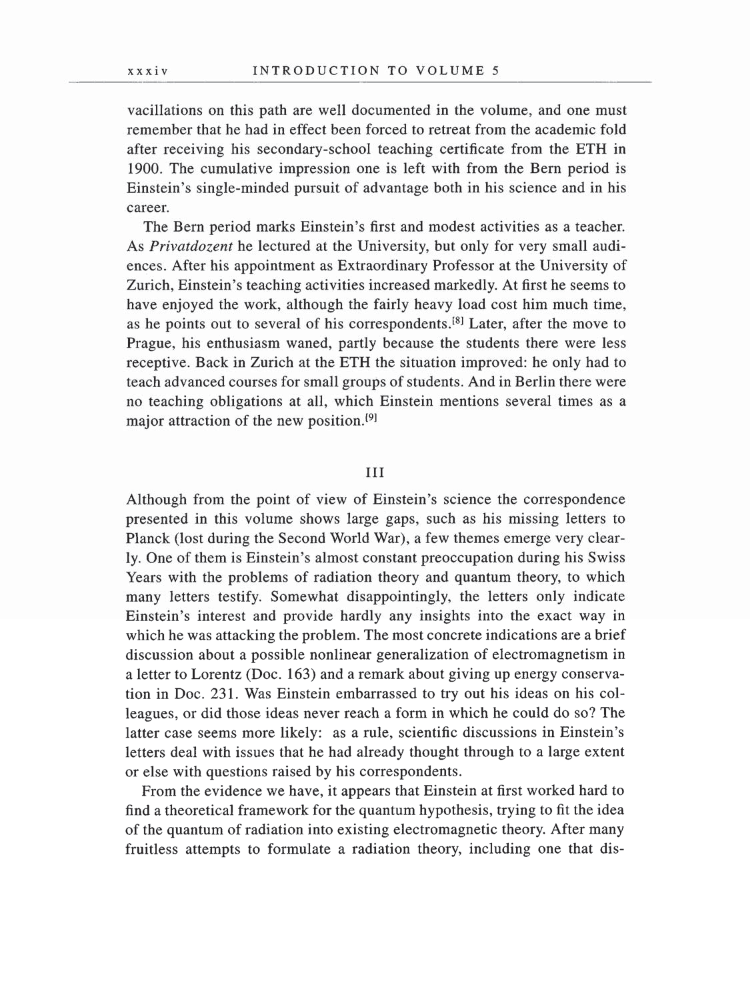xxxiv INTRODUCTION TO VOLUME 5 vacillations on this path are well documented in the volume, and one must remember that he had in effect been forced to retreat from the academic fold after receiving his secondary-school teaching certificate from the ETH in 1900. The cumulative impression one is left with from the Bern period is Einstein's single-minded pursuit of advantage both in his science and in his career. The Bern period marks Einstein's first and modest activities as a teacher. As Privatdozent he lectured at the University, but only for very small audi- ences. After his appointment as Extraordinary Professor at the University of Zurich, Einstein's teaching activities increased markedly. At first he seems to have enjoyed the work, although the fairly heavy load cost him much time, as he points out to several of his correspondents.[8] Later, after the move to Prague, his enthusiasm waned, partly because the students there were less receptive. Back in Zurich at the ETH the situation improved: he only had to teach advanced courses for small groups of students. And in Berlin there were no teaching obligations at all, which Einstein mentions several times as a major attraction of the new position.[9] III Although from the point of view of Einstein's science the correspondence presented in this volume shows large gaps, such as his missing letters to Planck (lost during the Second World War), a few themes emerge very clear- ly. One of them is Einstein's almost constant preoccupation during his Swiss Years with the problems of radiation theory and quantum theory, to which many letters testify. Somewhat disappointingly, the letters only indicate Einstein's interest and provide hardly any insights into the exact way in which he was attacking the problem. The most concrete indications are a brief discussion about a possible nonlinear generalization of electromagnetism in a letter to Lorentz (Doc. 163) and a remark about giving up energy conserva- tion in Doc. 231. Was Einstein embarrassed to try out his ideas on his col- leagues, or did those ideas never reach a form in which he could do so? The latter case seems more likely: as a rule, scientific discussions in Einstein's letters deal with issues that he had already thought through to a large extent or else with questions raised by his correspondents. From the evidence we have, it appears that Einstein at first worked hard to find a theoretical framework for the quantum hypothesis, trying to fit the idea of the quantum of radiation into existing electromagnetic theory. After many fruitless attempts to formulate a radiation theory, including one that dis-
